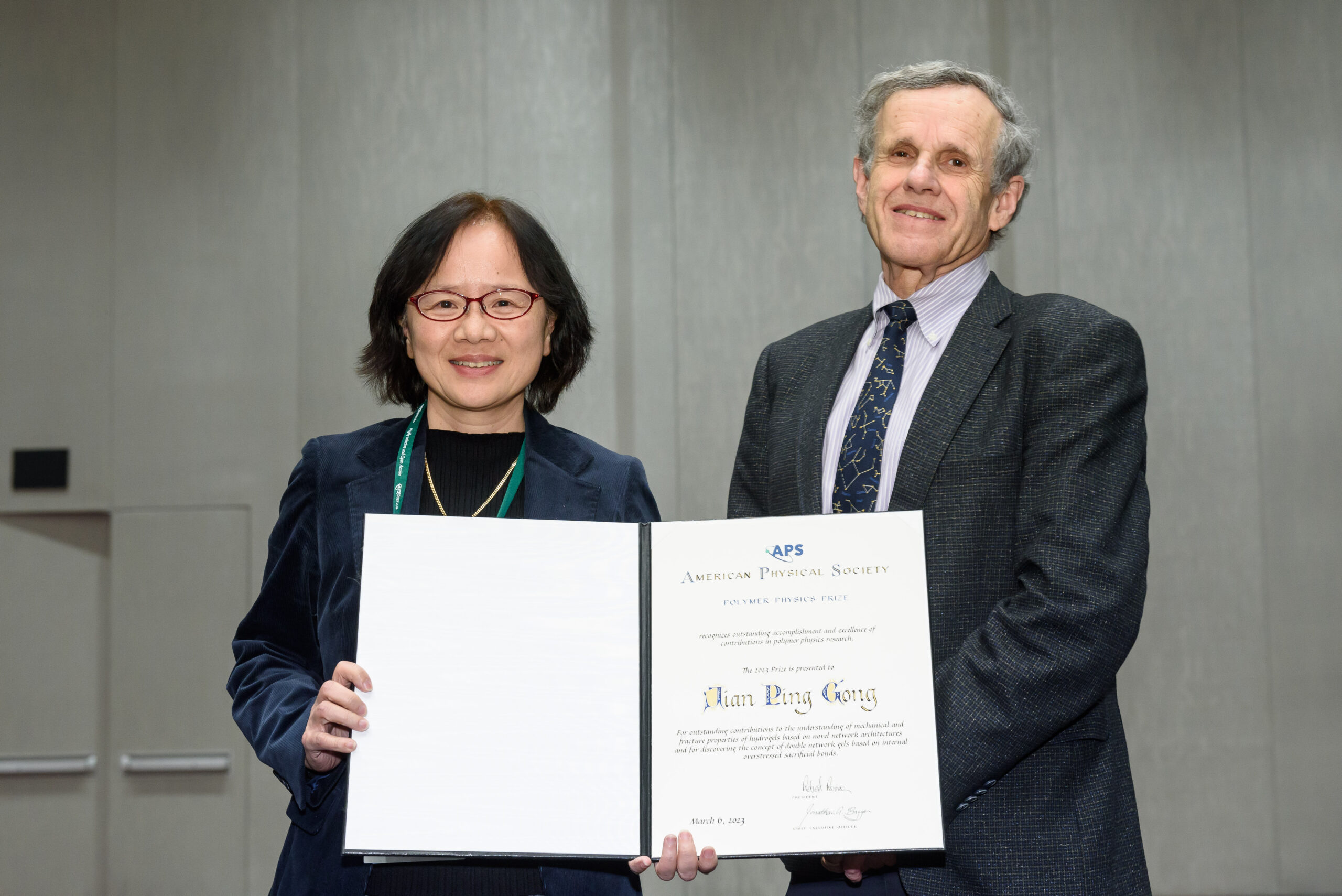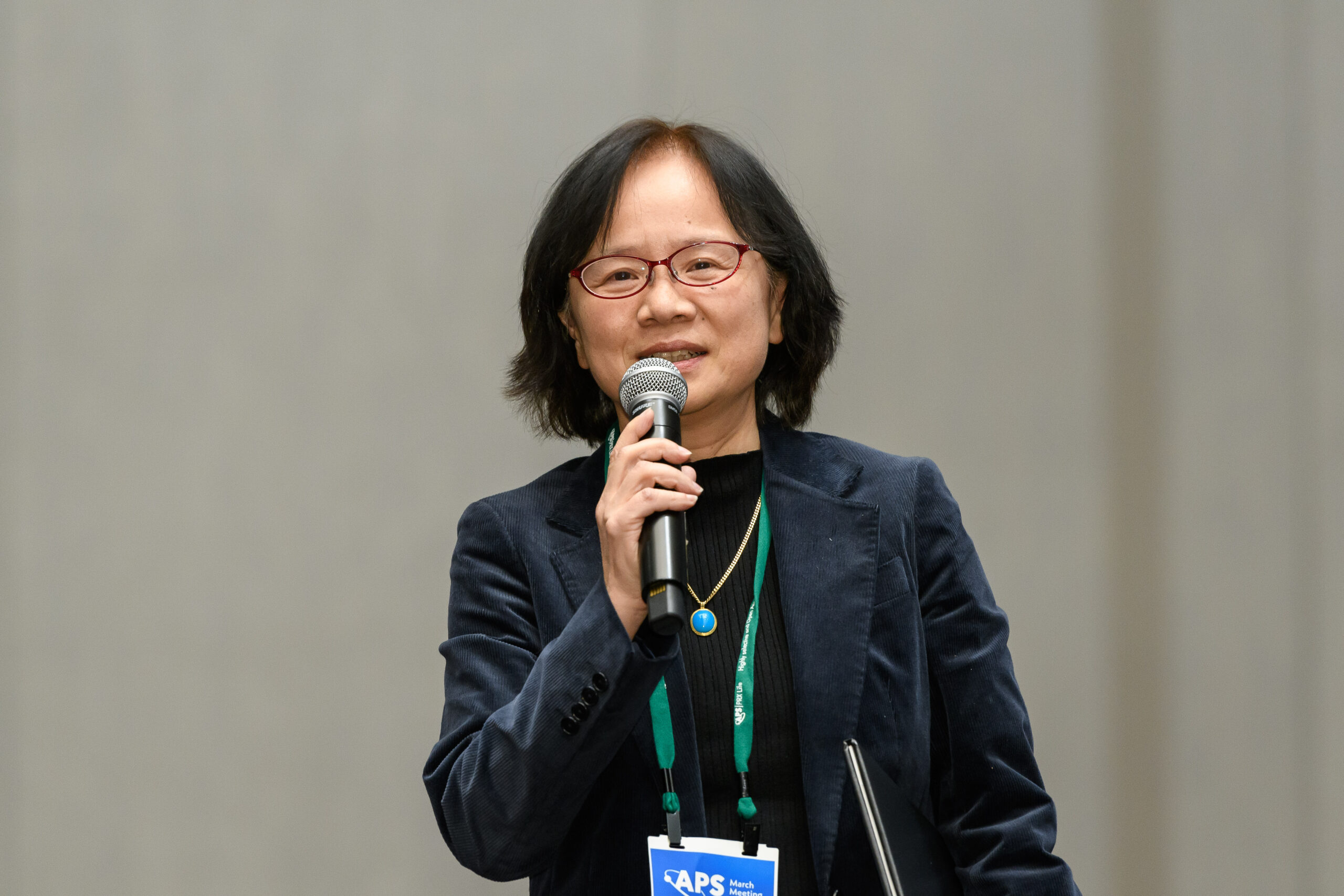Prof. Jian Ping Gong receives 2023 Polymer Physics Prize from American Physical Society
University News | April 14, 2023
Professor Jian Ping Gong [Faculty of Advanced Life Science; The Institute for Chemical Reaction Design and Discovery (WPI-ICReDD)] has won the Polymer Physics Prize from the American Physical Society (APS).
The award ceremony was held on March 6, 2023 (March 7, Japan time) in Las Vegas, U.S.A., and the certificate was presented by Robert Rosner, President of the APS. Five researchers, including Prof. Gong, gave invited lectures at the APS March Meeting 2023, where a special session was organized to commemorate the prize.
Each year the Polymer Physics Prize selects one recipient from all over the world. The Prize has a history of over 60 years and has previously been awarded to Nobel Prize laureates, considered one of the highest awards in polymer science. This marks the fourth time that the Prize is awarded to a researcher in Asia, after 22 years blank.
Prof. Gong received the award “for outstanding contributions to the understanding of mechanical and fracture properties of hydrogels based on novel network architectures and for discovering the concept of double network gels based on internal overstressed sacrificial bonds.”
Hydrogels are jelly-like substances which contain abundant water and have a wide range of potential applications, including bio-substitute materials. However, conventional hydrogels are mechanically very weak and their applications have been extremely limited. Prof. Gong and her colleagues discovered that a double-network structure consisting of a hard, brittle network and a soft, stretchable network gives the gel strength and toughness comparable to cartilage or industrial rubber. Furthermore, they elucidated that the unusually high toughness of the hydrogel is due to the sacrificial bond effect of the double-network structure. The toughening of polymeric materials based on the sacrificial bond principle proposed by Prof. Gong has been applied to various tough gels and industrial rubber designs.
“’I never dreamt that I would receive this award because so many prominent researchers have received it,” said Professor Gong. “I am very happy that the importance of my 20-year-long research is highly valued. I would like to thank all my collaborators and students with whom I have worked.”
Photos and original article by Faculty of Advanced Life Science
Related links:
Tackling Global Issues Vol.1 Soft Matter: Material of the Future
Extremely tough double network hydrogels open up numerous potential applications
New “tougher-than-metal” fiber-reinforced hydrogels
Squid tissues and chemistry combine for versatile hydrogels
Hydrogel mimics human brain with memorizing and forgetting ability
Bio-inspired hydrogel can rapidly switch to rigid plastic
Self-growing materials that strengthen in response to force


